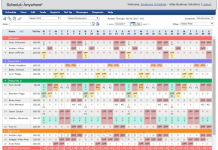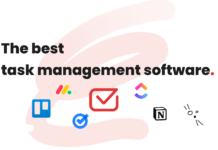
Is your business prepared in the case of a fire or flood? According to FEMA, 40% of businesses are unable to reopen after a disaster. While these businesses may have insurance policies to help recoup after a fire or natural disaster, it is usually not enough to cover the cost of lost revenue and bills that continue to pile up while your business is closed.
As a business owner, you should take steps to prepare for any disaster that may strike to ensure you can quickly reopen your doors. Proactive planning can help mitigate your losses after a fire or flood, allowing you to recover much more quickly.
How To Prepare Your Business For A Disaster
1 – Identify Any Risks To Your Business
Before creating a plan for your business, you should identify any potential risks. Once all potential risks are identified, you can take steps to prevent them from hurting your business.
Flood Risks To Look For:
- Is your business located in a flood zone? Review the flood maps of our area by inputting your address into FEMA’s flood map.
- Are there any storm or sewer drains that are clogged or not draining away water?
- Learn the base flood elevation for your business and determine whether or not the elevation of your lowest floor is above or below the BFE. If below, it’s more likely for your structure to flood.
Fire Risks to Look For:
- Review how all flammable liquids are being stored. Make sure that they are stored and thrown away properly.
- Inspect the electrical wiring for any signs of wear. Outdated or overloaded electrical systems can pose a major fire hazard, especially when using large appliances or machinery.
- Look for any areas of your business that are cluttered with papers, dust, or flammable materials. Clutter can help a fire spread and should be eliminated if possible.
2 – Have Copies of All Important Documents
In the case of a flooding or fire disaster in your business, you don’t want to lose all the important paperwork or documents needed for your business to run. If these are lost, it can take weeks to get new copies or they may be lost forever, seriously hurting your business’ recovery.
Make sure that you have copies of all important documents stored electronically or in a safe place not inside your business. This way, if you need to apply for loans or emergency relief, all the important documents for your business are easily accessible.
3 – Create an Emergency Plan
You don’t want your employees left with no idea of what to do in the case of a fire or a flood. You should create emergency plans, clearly post them, and make sure your employees are properly informed.
According to FEMA, you should teach employees the following protocol in case of a fire emergency:
- Call 911
- Notify others in the building of the fire
- How to use a fire extinguisher and when to use it
- Do not use the elevator. Walk out of the building, don’t run
- If employees cannot evacuate, teach them the following:
- Seal door gaps with jackets
- Wait at the window for help and make it clear you are stuck
- Remain calm
For a flooding emergency, you should teach employees the following:
- Where the electrical, gas, and water shutoff valves are and how to turn them off
- Where to relocate or secure items that can be swept away by flood waters
- What items or materials could be damaged when in contact with water
- Where to move electronics or valuables
- Evacuation routes from your business to safe areas
Regardless of the type of disaster, you should also make sure of the following:
- Emergency exits are clearly labeled and accessible for those who are disabled
- Evacuation routes are clearly displayed by emergency exits
- Electrical, gas, and water shutoff valves are clearly labeled
- Fire extinguishers are up to date and in an accessible area
- Smoke alarms are working properly
- Your fire suppression system is working properly
4 – Choose Contractors Before Disasters Strike
It’s best to choose your plumber, contractor, water cleanup company, or fire cleanup company before any disasters strike. That way, you already know a reputable company to call in your time of need. Make a list of these contractors and have it accessible to other employees in case you’re not there.
5 – Understand Your Business’ Insurance Coverage
You want to fully understand your commercial insurance policy before a disaster strikes so you know exactly what is and isn’t covered. If you discover that your business is located in a flood zone but your insurance policy doesn’t cover flooding from natural disasters, you’ll want to buy supplemental coverage. You don’t want to find out something isn’t covered when you need the help most.
You should also take note of your insurance limits and deductibles so that you’re fully aware of what you do and don’t have to pay for when you file a commercial insurance claim. You’ll want to always be sure you can pay the deductible amount for your insurance claim in the case of an emergency.
6 – Look For Small Business Disaster Recovery Loans
Sometimes the hardest part about reopening your business after a disaster is a lack of cash flow. When you can’t pay your employees or suppliers, your business will grind to a halt. When natural disasters strike, the Small Business Administration provides loans to help businesses reopen more quickly. Researching these before a disaster strikes will help you be prepared in case you need to apply for one.
Always Take Steps To Prepare Your Business For A Disaster
Life, weather, and the economy are unpredictable and can turn your upside down in a moment’s notice. As a business owner, you must be prepared for any type of disaster to not be a part of the 40% of businesses that don’t reopen after a flood or fire. There will always be more ways to prepare and protect the life of your business.











